Mobile banking brings pleasure as well as pain because of the dangers mentioned hereof–
1. Information in Mobile devices is as vulnerable as in computers
It’s a well known fact that feeding extensive private information in public computers is dangerous. So is the case in mobile devices that act as tiny computers. “Mobile banking apps are connected to wireless networks, and these networks are inherently insecure as they broadcast their messages into the open air,” said Ron Vetter, co-founder of Mobile Education LLC and member of IEEE Computer Society.

It’s a well known fact that feeding extensive private information in public computers is dangerous. So is the case in mobile devices that act as tiny computers. “Mobile banking apps are connected to wireless networks, and these networks are inherently insecure as they broadcast their messages into the open air,” said Ron Vetter, co-founder of Mobile Education LLC and member of IEEE Computer Society.
2. Having a Password is necessary
Using your phone or device without password is like leaving your home unlocked while you are away. It enhances the chances of misuse, if you ever lose your phone. To ensure protection of your bank information, a complicated password is most desired. Without proper security measures like password, anyone can log into your app and get access to your bank details. Passwords might not be able to save you entirely from mobile info theft but would at least increase your chances of survival.
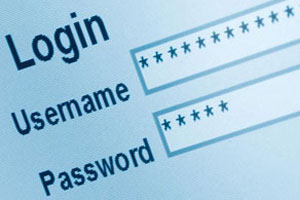
Using your phone or device without password is like leaving your home unlocked while you are away. It enhances the chances of misuse, if you ever lose your phone. To ensure protection of your bank information, a complicated password is most desired. Without proper security measures like password, anyone can log into your app and get access to your bank details. Passwords might not be able to save you entirely from mobile info theft but would at least increase your chances of survival.
3. Never allow your device to auto-save password
Allowing your device to auto-save your password is like having no password at all. “One should never allow apps to remember usernames and/or passwords,” said Ron Vetter. The information becomes easily available to anyone who can lay a hand on your mobile or device if the username and password is already saved.

Allowing your device to auto-save your password is like having no password at all. “One should never allow apps to remember usernames and/or passwords,” said Ron Vetter. The information becomes easily available to anyone who can lay a hand on your mobile or device if the username and password is already saved.
4. Resist using shared devices
Using shared devices for mobile banking increases the chances of losing valuable account information. Make sure that other users are not surfing high-risk sites as it enhances the probability of users downloading key-logging software onto your device and hence compromise your mobile banking session.
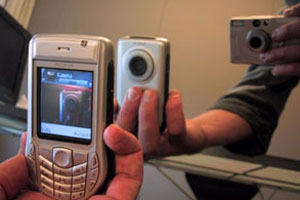
5. Depositing check with the help of camera and banking app
Banks try not to provide instant funds to those who deposit checks remotely with the help of a camera and banking app. The time taken to release funds when a check is deposited in ATM or bank is much less than time spent waiting for funds when you provide check via banking app. This is a measure to protect banks against fraud.

Banks try not to provide instant funds to those who deposit checks remotely with the help of a camera and banking app. The time taken to release funds when a check is deposited in ATM or bank is much less than time spent waiting for funds when you provide check via banking app. This is a measure to protect banks against fraud.
6. Download apps directly from bank’s website
There are a lot of fake apps on the run and using one of them may make you lose important information and eventually detach you from your money. Just because an app is downloaded from an app store does not ensure it authenticity. “Consumers tend to assume that just because an application is on an app store, it’s been heavily vetted by either Google, Apple or otherwise,” said Doug Johnson, vice president of risk management at the American Bankers Association.

There are a lot of fake apps on the run and using one of them may make you lose important information and eventually detach you from your money. Just because an app is downloaded from an app store does not ensure it authenticity. “Consumers tend to assume that just because an application is on an app store, it’s been heavily vetted by either Google, Apple or otherwise,” said Doug Johnson, vice president of risk management at the American Bankers Association.
7. Some devices are more prone to viruses than others
“In the fourth quarter of 2012, 97 percent of all of the malware released into the mobile environment was targeted against Android,” said Julie Conroy, a research director for Aite Group. Android has been a current favourite of developers of malware viruses since most other brands are not immune to viruses. Smart phones are more susceptible to viruses and hence more prone to losing valuable banking information.
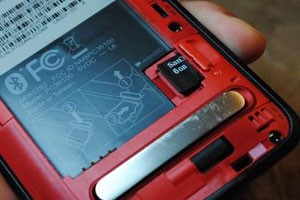
“In the fourth quarter of 2012, 97 percent of all of the malware released into the mobile environment was targeted against Android,” said Julie Conroy, a research director for Aite Group. Android has been a current favourite of developers of malware viruses since most other brands are not immune to viruses. Smart phones are more susceptible to viruses and hence more prone to losing valuable banking information.
8. Use storage cards to save bank details
Never save sensitive information directly in your phone and instead use storage cards. Most of the time, your phone might save information even after you have cleaned its memory. Try and use a program that will completely clean your device especially before you discard or resell your mobile.
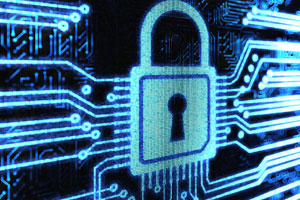
Never save sensitive information directly in your phone and instead use storage cards. Most of the time, your phone might save information even after you have cleaned its memory. Try and use a program that will completely clean your device especially before you discard or resell your mobile.
9. Always update security apps
Do not ignore notification about security updates since it is most essential in case you have confidential information saved in your device. “Sometimes those updates include security updates, and you want to make sure you have the latest and greatest version of the whole app,” Julie Conroy said.
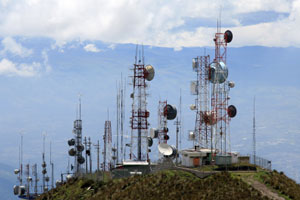
Do not ignore notification about security updates since it is most essential in case you have confidential information saved in your device. “Sometimes those updates include security updates, and you want to make sure you have the latest and greatest version of the whole app,” Julie Conroy said.
10. Strong network means stronger security
The probability of losing messages or information in transit is much higher when operating network connectivity is low since mobile apps broadcast data into open air. While doing mobile banking, make sure you are in a strong network service range.
Source -
Avoid These 10 Biggest Risks Of Mobile Banking:
'via Blog this'
The probability of losing messages or information in transit is much higher when operating network connectivity is low since mobile apps broadcast data into open air. While doing mobile banking, make sure you are in a strong network service range.
Source -
Avoid These 10 Biggest Risks Of Mobile Banking:
'via Blog this'
2 comments:
Nice post with great details. I really like your info. Thanks for the effort of awareness. cep telefonun
Have used AVG protection for a number of years now, and I'd recommend this solution to all you.
Post a Comment